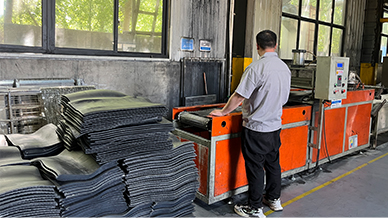Exploring the Importance of Fuel Pipes in Efficient Petrol Engine Performance and Maintenance
ágú . 04, 2024 02:31 Back to list
Exploring the Importance of Fuel Pipes in Efficient Petrol Engine Performance and Maintenance
The Importance of Petrol Fuel Pipes in Automotive Engineering
In the world of automotive engineering, the significance of fuel delivery systems cannot be overstated. Among the various components that make up this critical system, petrol fuel pipes play a pivotal role in ensuring that vehicles operate efficiently and safely. Fuel pipes are responsible for transporting petrol from the fuel tank to the engine, where it is mixed with air and ignited to produce power. A closer examination of these components reveals not only their importance but also the materials, design considerations, and maintenance issues involved.
The Role of Fuel Pipes
Petrol fuel pipes are essential for managing the flow of fuel throughout the vehicle's fuel system. Their primary function is to provide a secure and reliable pathway for petrol to travel from the tank to the engine. Given that petrol is a volatile substance, the pipes must be constructed from materials that can withstand a range of temperatures and pressures. Additionally, these components must prevent leaks, which can pose significant safety hazards, including the risk of fire.
Materials Used in Fuel Pipes
Fuel pipes are typically made from specialized materials designed to resist corrosion, abrasion, and degradation over time. Common materials include rubber, plastic, and metal alloys. Rubber fuel hoses are flexible and lightweight, making them suitable for various automotive applications. However, they may degrade over time due to exposure to fuel and environmental conditions. Plastic pipes, often made from polymers like polyethylene, are lightweight and resistant to corrosion, but they may lack the durability of metal options.
Metal fuel pipes, often composed of stainless steel or aluminum, offer the highest level of durability and resistance to punctures and damage. However, they can be heavier and less flexible, which may be a concern in some vehicle designs. The choice of material is influenced by factors such as cost, vehicle type, and expected operating conditions.
Design Considerations
petrol fuel pipe

The design of petrol fuel pipes requires careful consideration to optimize fuel flow and minimize the potential for leaks. Engineers analyze factors like pipe diameter, length, and bends to ensure an efficient transportation of fuel. Ideally, the design should create the least amount of resistance to fuel flow while maintaining structural integrity under varying pressures.
Additionally, connections and fittings at either end of the fuel pipes must be designed to prevent leaks. Secure fittings that can withstand vibrations and movements caused by vehicle operation are crucial. Many modern vehicles employ quick-connect fittings to facilitate easier installation and replacement while ensuring a tight seal.
Maintenance and Safety Issues
Regular maintenance of petrol fuel pipes is crucial for ensuring vehicle safety and performance. Over time, wear and tear can lead to cracks, leaks, and other failures. Inspecting fuel pipes for signs of damage—such as brittleness, swelling, or leaks—is an essential part of routine vehicle maintenance. Drivers should be aware of symptoms such as unusual smells, engine performance issues, or visible fuel leaks, which could indicate a problem with the fuel system.
In addition to regular inspections, replacing old or damaged fuel pipes with high-quality components is vital for safety. Installing subpar parts can lead to catastrophic failures and pose serious risks, including potential fires.
Conclusion
In conclusion, petrol fuel pipes, though often overlooked, are crucial components of a vehicle's fuel system. Their role in safely transporting fuel, the materials used, the design considerations, and the critical importance of maintenance all contribute to the overall efficiency and safety of automotive vehicles. As technology continues to advance in automotive engineering, ensuring that fuel pipelines are designed and maintained to the highest standards will remain a top priority for manufacturers and vehicle owners alike, contributing to safer and more reliable transportation.
